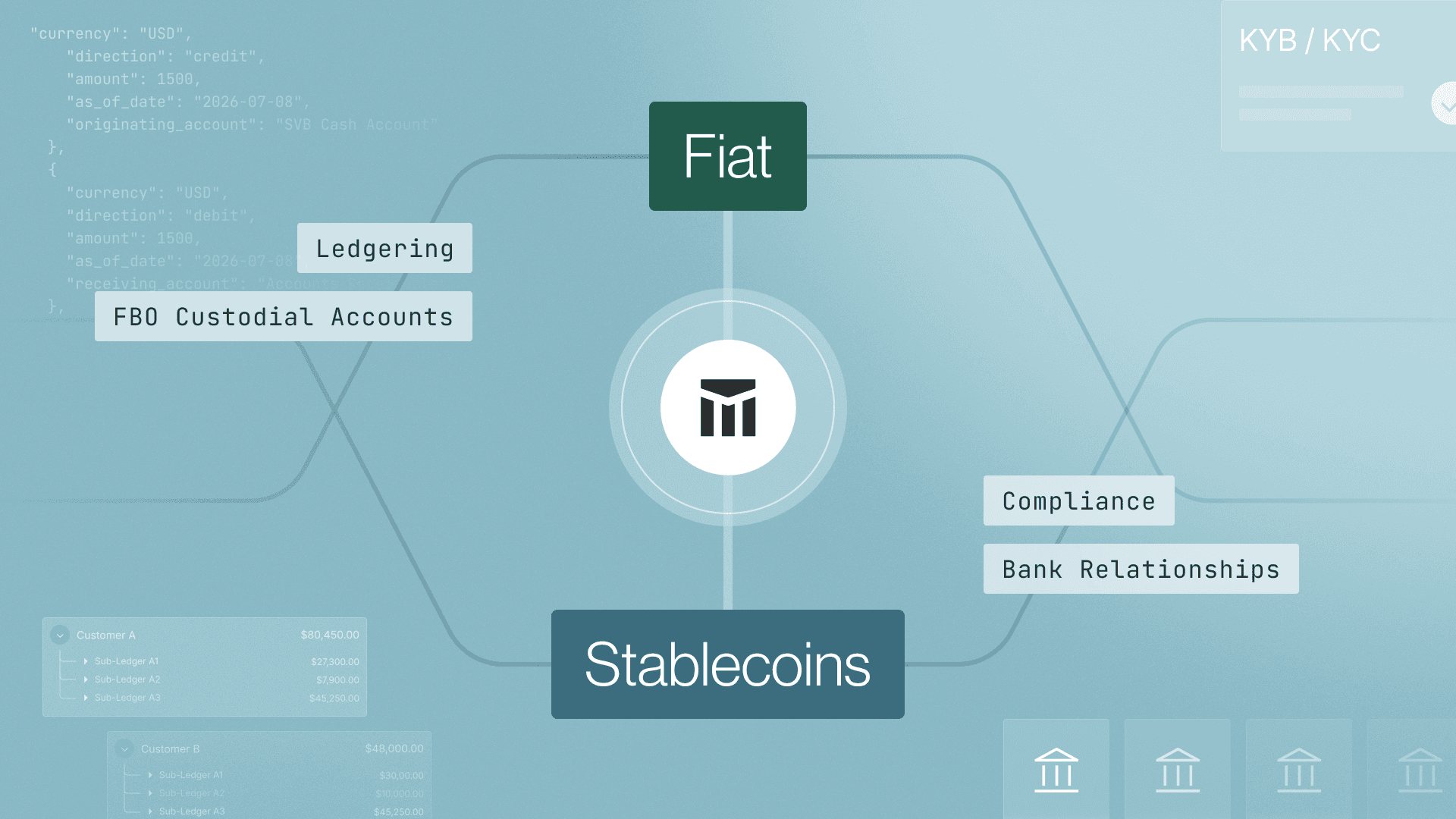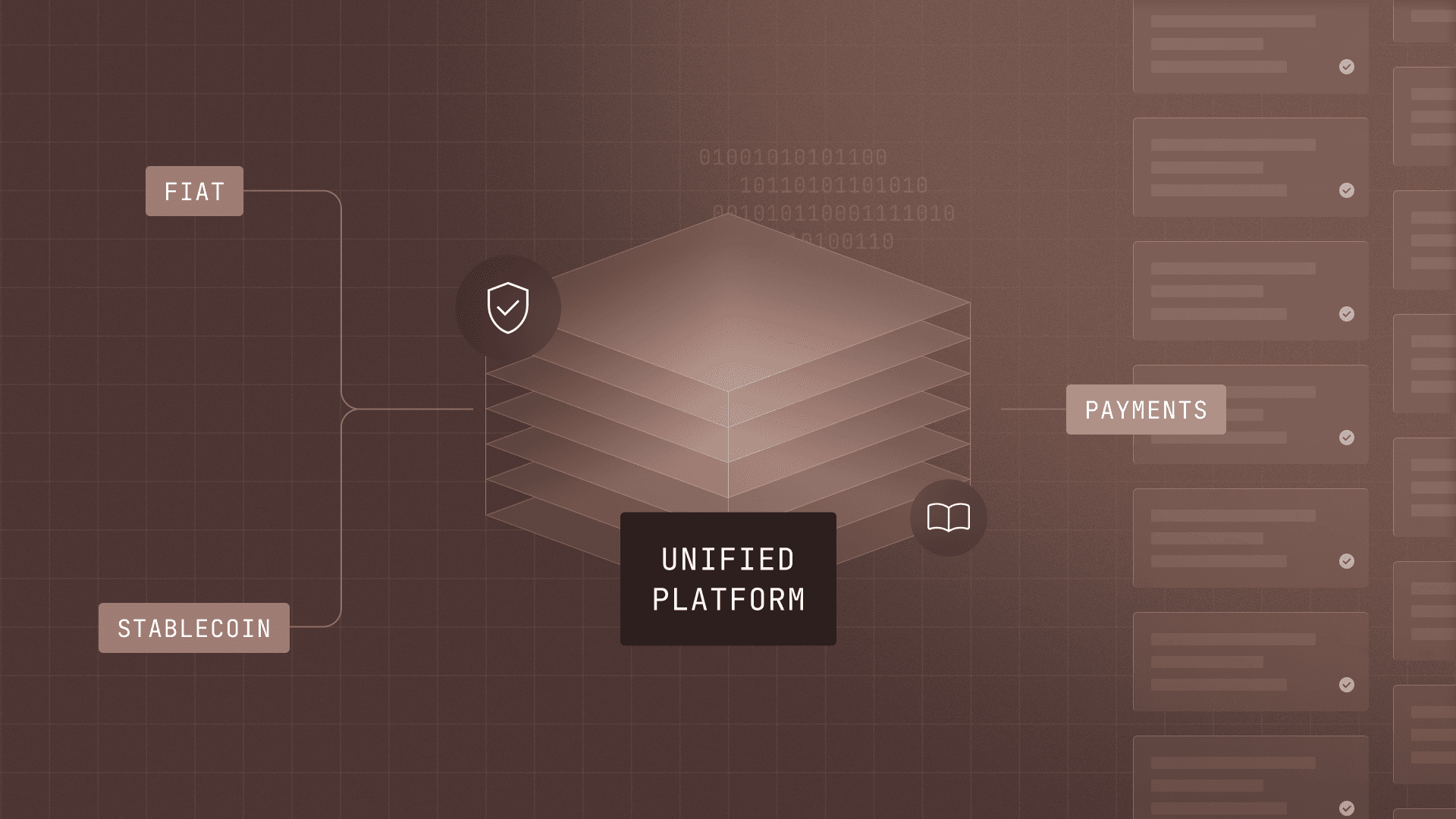Introducing Modern Treasury Payments. Built to move money across fiat and stablecoins. Learn more →
How to Set Up Payments for Your Startup
Startups depend on the function of money movement and how well it can scale up with the business. The process of setting up payments begins with a few key steps.

Growing startups need to accept and move money on a regular basis. Whether you’re a team of 50 in Silicon Valley or a team ballooning to 200 people in Ohio, your business depends on the function of money movement and how well it can scale up with the business.
When thinking about how to set up payments for your organization today and its future growth, it is important to educate yourself on payment operations and the different payment rails. We’ve seen customers get frustrated when they realize that issuing wires costs $25 or that ACH payments can be returned.
While payment operations tend to vary across industries, the process of setting up payments—and preparing to scale in the future—begins with a few key steps.
The Process
Get a Corporate Bank Account
This requires finding a bank that will work for your company’s needs. Some banks are more willing to work with startups than others, while particular banks can specialize in industry verticals. Other banks may have rigid eligibility standards, fee structures, or difficult timelines that don’t align with fast-growth startups.
Select Your Payment Rails
The most effective payment rail can vary depending on the industry and it is not uncommon for businesses to use multiple payment rails. When considering payment rails, factor in elements like speed, cost, and ubiquity into your decision. For instance, wires are instant and typically get used for higher-dollar volume payments, but cost more than other options. ACH works well for sending lower dollar volume while giving you the ability to pull funds directly from customers. Your decision in selecting payment rails will depend on the functionality you need and your bank’s capabilities.
Understand Regulatory Compliance
Every industry and payment rail adheres to specific regulations around money movement. It’s important that startups are aware of these rules. While your startup might follow regulations, you could be on the hook if a customer does not follow the rules. This might include filling out a Know Your Customer (KYC) procedure to assess customer risk and meeting legal requirements to comply with Anti-Money Laundering (AML) laws.
Integrate Into Your Product
Building your own bank integration involves building transmission, reconciliation, and accounting capabilities. Plus, companies will need to integrate payment capabilities into its product, automating core payment flows if applicable. Typically, large companies that process high volumes of payments benefit from building an integration. They have a full team dedicated to the process. For a startup, building an integration is possible, but difficult since most startups lack the payment expertise. As an alternative, startups can seek out a payments operations solution.
Different Payment Rails Offer Advantages
Setting up payments looks different for every startup, particularly those that occupy different industries. If a startup sells goods, services, or subscriptions to consumers or small businesses, they most likely rely on credit card payments. New innovations have recently made it easier to accept credit cards on- and offline, with platforms like Stripe, Square, and Adyen.
For businesses in e-commerce, insurance, and other B2B services, it’s more likely that transactions will happen via ACH, wire, paper check, or Real-Time Payments (RTP). ACH is a cost-effective, reliable, and hassle-free way to collect recurring payments. Startups may opt for RTP because it allows businesses to transfer and settle funds instantly, which is ideal for payroll, utility bill payments, and even retail payments.
Most of the economy is actually transacted over bank-mediated rails, or through a company bank account. Users log into their bank account, identify the recipient, and the bank sends the wire.
Some companies have finance teams managing payment operations. These teams are often made up of controllers, payments consultants, payroll analysts, or operations specialists. They spend their days ensuring the efficient flow of payments. The accuracy of maintaining records and payment transparency grows more important when hundreds of thousands or millions of dollars are at stake. A Harris Poll survey conducted online on behalf of Modern Treasury reveals that more than four in five companies (84%) face payment operations problems such as slow payments, a high rate of payment failures, returns and refunds, and data quality errors.
The takeaway? Modern money movement, particularly at scale, requires automated solutions to manage hundreds of thousands of transactions a day and ensure payment transparency—which many growth-oriented startups need to thrive.
Opportunities to Scale
At the outset, a growing startup may manually handle only a handful of payments a day. Manual payment ops may make sense at first—but things change fast for a startup gaining momentum.
Modern Treasury data reveals that more than one-third of payment operations are still manual, which can lead to slower processing and more errors. The need for a more efficient payment system becomes urgent as companies scale. The good news? More than 4 in 5 companies (81%) say they would benefit from modernizing payment ops in terms of increased speed, flexibility, and transparency with money movement. The growth-oriented nature of startups anticipates the need for a platform like Modern Treasury that offers full visibility and business integration for transactions at scale.
To learn more about the future of money movement with Modern Treasury, you can sign up for a sandbox or reach out to talk to a payments advisor.








